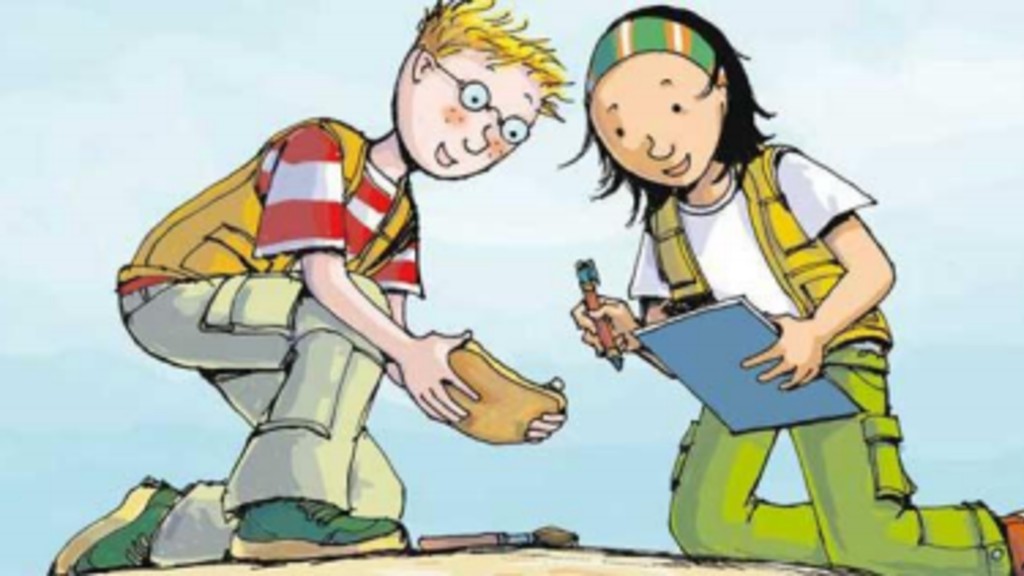TURBA Lab inspires a story written for primary school children that has received an award in a science story competition
The award-winning story explains how urban greenery helps reduce the effects of climate change in citiesResearchers at the Universitat Oberta de Catalunya (UOC) will hold an event to publicize the research group and its work at the school that has received the award

TURBA Lab, which is part of the UOC's Internet Interdisciplinary Institute (IN3), and its researchers have inspired a group of year 5 students at the Lumen school in Terrassa to create a story about climate change and its effects. The story, which is called La Laura i en Joan lluiten contra el canvi climàtic (Laura and Joan Fight Against Climate Change), has won the Science Story competition organized by the Department of Universities and Research of the Government of Catalonia. Under the terms of the competition, participants had to get Laura and Joan, the main characters of the story, to research a topic chosen by the students.
A teacher from the school in Terrassa suggested that the children submit a story inspired by TURBA Lab. Once the winner had been announced, the Government of Catalonia asked the research group to revise the story from a scientific point of view and replace the characters' names with those of real researchers. The work, which tells a story on how urban greenery helps reduce the effects of climate change in cities, will be illustrated and published in both printed and digital formats. In addition, a scientific education activity with researchers is scheduled to be held at the school in late April.
Mar Satorras, one of the TURBA Lab researchers involved in revising the story, explained that the initiative ties in well with the group's aim to focus on "science for society and with society" and to try to ensure that the science they work on is "co-produced with other players" both in feedback sessions following results and by involving them in the entire research process. It is precisely along these lines that the group is planning to hold a workshop with TURBA researchers at the Terrassa school with the goal of bringing science to the classroom.
Thinking of "small actions" to do at school
These TURBA Lab researchers are also planning to work with Lumen school students on some of the effects of climate change that may affect them in Terrassa, such as higher temperatures, droughts and floods. The idea, as explained by Satorras, is to gather "small ideas" at school to help reduce the impact of climate change. These actions can range from trying to provide more shade in the playground to actions such as decorating classroom windows. The aim is to suggest ideas that are "possible based on children's creativity, experience and imagination".
This approach ties in with Rescities, a project coordinated by TURBA Lab and funded by the State Research Agency that focuses on urban resilience and community initiatives to fight the effects of climate change. Satorras said that the idea of working with the students in Terrassa is to "incorporate the perspective of how to empower them so they can play an active role when it comes to acting against climate change". This shows how members of the public themselves respond to the effects of this phenomenon "and how imagination can be used to everyone's benefit".
New generations with greater awareness
Isabel Ruiz Mallén, head of co-creation research at TURBA Lab, sees the fact that a UOC research group working on environmental issues has been chosen by the school in Terrassa as positive and noted that, in recent years, issues such as climate change have "made a deep impression on young people" as a result of factors such as the media coverage of activist Greta Thunberg, and that this interest is also growing among younger children. As Ruiz Mallén explained, projects such as green schools "provide environmental education, teaching students from a very early age and making them more aware of the need to look after the environment". The new generations are proving, with movements such as Fridays for Future, that they have taken on a "more activist role" in this field, she added.
This UOC activity promotes Sustainable Development Goals (SDG) 13, (climate action) and 15 (life on land).
UOC R&I
The UOC's research and innovation (R&I) is helping overcome pressing challenges faced by global societies in the 21st century, by studying interactions between technology and human & social sciences with a specific focus on the network society, e-learning and e-health. Over 500 researchers and 51 research groups work among the University's seven faculties and two research centres: the Internet Interdisciplinary Institute (IN3) and the eHealth Center (eHC).
The United Nations' 2030 Agenda for Sustainable Development and open knowledge serve as strategic pillars for the UOC's teaching, research and innovation. More information: research.uoc.edu. #UOC25years
Experts UOC
Press contact
-
Editorial department
